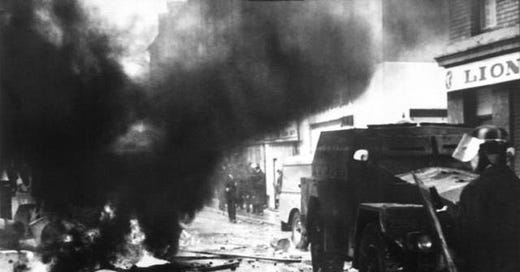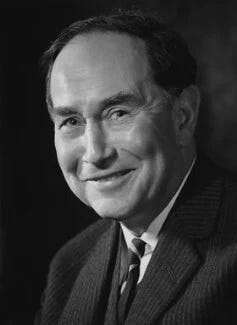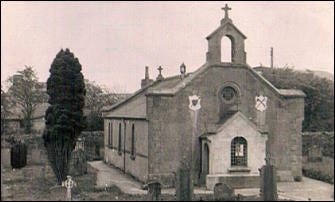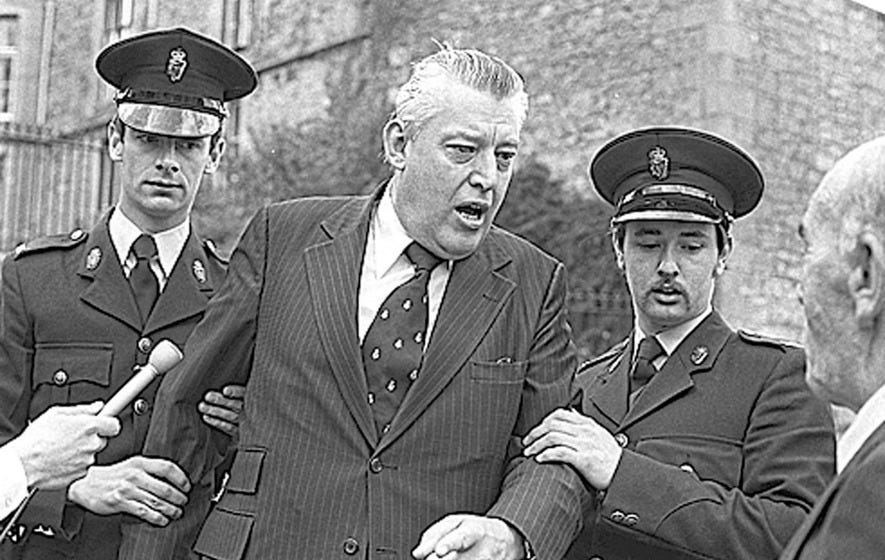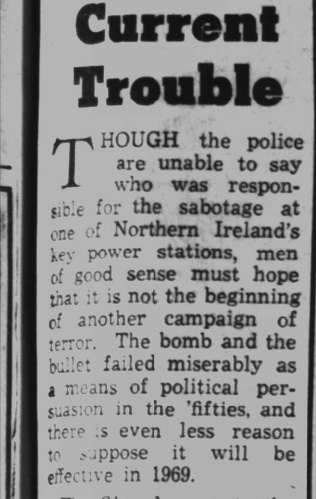March 1969 saw John Lennon tie the knot with Yoko Ono in Gibraltar, and during their honeymoon in Amsterdam, they staged their first bed-in protest for world peace. The irony of this is that at the same time in Northern Ireland we were moving further away from peace with every day that passed.
On the 11th of March, the Parliamentary Commissioner Bill was introduced which would allow for the appointment of an Ombudsman to investigate complaints against Stormont government departments. This had been a consequence of the trouble that had boiled over on the streets of Derry in October 1968.
Prime Minister Harold Wilson spoke in the House of Commons;
‘…the Northern Ireland Prime Minister has today informed the new Parliament at Stormont that, subject to the passage into law of a Bill which is to be introduced next week, the Northern Ireland Government will advise the Governor to appoint Sir Edmund Compton as the first holder of the office of Parliamentary Commissioner for Northern Ireland. The House will realise that, in this capacity, he would act on complaints referred to him by members of the Northern Ireland Parliament in relation to actions of the Northern Ireland Departments. He would not investigate such actions on behalf of members of this House.’
Loyalists were intent on bringing down the UUP Prime Minister of Northern Ireland, Terence O'Neill, who had promised some concessions to the civil rights movement. As a result, Members of the UVF and UPV bombed multiple locations in March.
On Friday 21st March, a Catholic church was extensively damaged in a bomb blast. The explosion occurred in the early hours of the morning at the Holy Family Church, about five miles outside Larne, County Antrim. The entrance porch was almost destroyed, the bell tower was severely shaken, windows were shattered, the walls were cracked and part of the terrazzo aisle was broken. The effects of the blast extended to the school, neighbouring houses and the cemetery. The condition of the church brought sympathy from both Protestants and Catholics. Within a short time over £200 was received in subscriptions from people of all denominations.
On Tuesday 25th March Ian Paisley and Ronald Bunting were sentenced to three months in jail at Armagh for participating in an unlawful assembly during a civil rights march in November 1968.
On Sunday 30th March, There were several explosions at an electricity substation at Castlereagh, east Belfast. The explosions resulted in a blackout in a large area of Belfast and did damage reported to be worth anywhere between £500,000 and £1,000,000. With the widespread opinion holding the IRA responsible for the explosions, Ian Paisley was reported in the Telegraph on the 5th of April as saying;
“This is the first act of sabotage perpetrated by the IRA since the murderous campaign of 1956…suggestions have been made that an IRA splinter group – Saor Uladh – was responsible for the blast, but the sheer professionalism of the blast indicates the work of the well-equipped IRA…this latest act of IRA terrorism is an ominous indication of what lies ahead for Ulster. This province has continually been subjected to IRA barbarism, especially sabotage and ambush. Loyalists must now appreciate the struggle that lies ahead and the supreme sacrifice that will have to be made in order that Ulster will remain Protestant”
It was later established that the bombs were planted by Loyalists who were members of the Ulster Volunteer Force (UVF) and the Ulster Protestant Volunteers (UPV) as part of a campaign to destabilise Prime Minister Terence O'Neill and bring an end to reforms. It was alleged that the gelignite used in the blasts had been stolen from coal mines in Scotland by UVF supporters there and smuggled across the Irish Sea in suitcases carried by ferry foot passengers. The blasts coincided with a crucial Unionist Party standing committee to discuss the leadership of O’Neill.
Other bombs would be planted throughout 1969.

